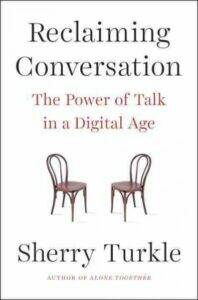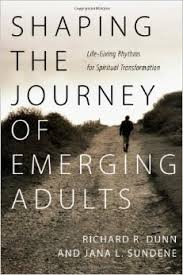Sapienta is an on-line resources that is sponsored by Trinity International University that focuses on research on emerging adulthood. Jana Sundene, co-author of Shaping the Journey of Emerging Adults, wrote this great article concerning the affect of digital communication upon the empathy skills of emerging adults. In this article, Jana conveys displays two things I love: a passion for emerging adults, and a positive perspective towards their impact upon the future of the church. Here is the article…
 It seems like every time I turn around I am hearing something about Sherry Turkle’s new book, Reclaiming Conversation: The Power of Talk in a Digital Age.Whether it is an interview, a podcast, an article or a review, this book appears to have hit a nerve with the general public.
It seems like every time I turn around I am hearing something about Sherry Turkle’s new book, Reclaiming Conversation: The Power of Talk in a Digital Age.Whether it is an interview, a podcast, an article or a review, this book appears to have hit a nerve with the general public.
Indeed, concern about how electronic devices and social media are affecting our relationships has been growing. I know it’s not just the older generations because very time I bring up this as a topic of discussion with the emerging adults in my college courses, the classroom lights up with comments and opinions.
Click here for the full article.
Here are some highlight quotes:
- From David Setran – “While cell phones preserve connections with individuals in a variety of locations, they may also compromise the ability to be fully present in any one place. Many emerging adults prefer virtual dispersion to embodied and situated connections with God, people, and texts.”
- Empathy, the ability to put ourselves in the place of the other, requires presence and is an important pre-requisite of compassion.
- Their empathy, their strongest sense of compassion, seems to be toward groups of people who are “situated elsewhere.” This is a definitely a strength and a huge gift to offer to the church.
So next time you find yourself in a situation with an emerging adult, give them the gift of presence. After bestowing this precious gift, don’t expect or demand that it to be fully repaid. Like other acts of giving, it should spring from an over-flowing heart, and lead by the tug of the Spirit.
Dr. G. David Boyd is the Managing Director of EA Resources.







